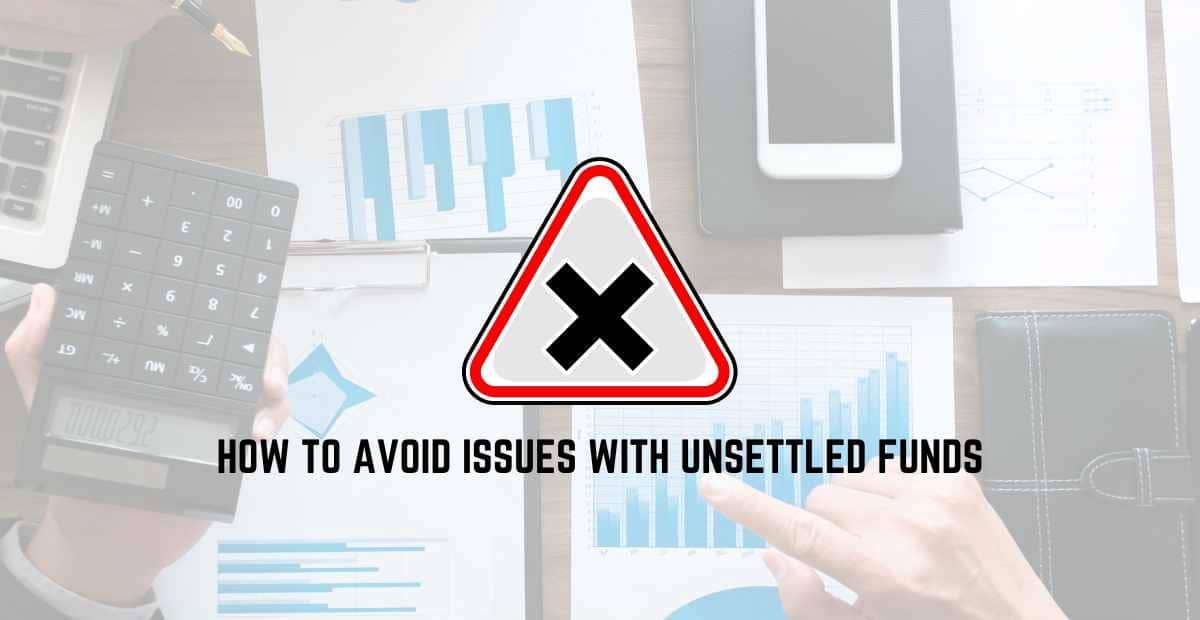Investing in the stock market comes with various rules and regulations that every trader must understand. One of the most commonly asked questions by investors, especially beginners, is whether they can buy stocks using unsettled funds. The answer to this question depends on the type of account you have and the specific rules imposed by your broker.
Unsettled Funds

When you sell securities, the proceeds from the sale do not immediately become available for withdrawal or reinvestment. This is due to the settlement period, which is the time required for transactions to be completed and cleared. The standard settlement time for most securities in the U.S. follows the T+2 rule, meaning that transactions settle two business days after the trade date.
T+2 Settlement Rule
The T+2 rule means that if you sell a stock on Monday, the funds from the sale will officially settle by Wednesday. Until then, the money is considered unsettled funds, and there are restrictions on how they can be used.
Buying Stocks with Unsettled Funds
Cash Accounts vs. Margin Accounts
The ability to buy stocks with unsettled funds largely depends on whether you have a cash account or a margin account.
Cash Accounts
A cash account is one in which trades must be fully paid for with available funds. If you attempt to buy stocks with unsettled funds in a cash account, you may trigger a good faith violation (GFV), which occurs when you purchase a security and sell it before the initial funds used to buy it have settled. Frequent violations can lead to account restrictions or even a suspension of trading privileges.
Margin Accounts
A margin account, on the other hand, allows investors to borrow funds from their broker to make trades. In a margin account, you can buy stocks immediately, even with unsettled funds, because the broker lends you the money while waiting for the previous trade to settle. However, using margin comes with additional risks and costs, such as interest on borrowed funds and margin calls if your account balance falls below required levels.
Consequences of Using Unsettled Funds Improperly
Good Faith Violations (GFVs)
A good faith violation occurs when a trader buys a stock using unsettled funds and then sells that stock before the initial trade has settled. If you commit too many GFVs, your broker may restrict your account to only allow purchases with settled funds for 90 days.
Freeriding Violations
Freeriding is another serious violation that happens when an investor buys a stock without having sufficient funds in their account and then sells the stock before the payment has been made. This practice is prohibited by the SEC (Securities and Exchange Commission) and can result in an account freeze, preventing further trading activity.
How to Avoid Issues with Unsettled Funds

To ensure that you stay compliant with trading regulations and avoid penalties, follow these best practices:
1. Wait for Funds to Settle Always allow two business days for trades to fully settle before reinvesting the proceeds.
2. Use a Margin Account If you qualify and understand the risks, a margin account can help you trade without waiting for funds to settle.
3. Check Your Broker’s Rules Some brokers have different policies regarding unsettled funds. Always check your broker’s specific guidelines.
4. Keep Extra Cash in Your Account Having additional settled cash in your account allows you to make trades without relying on unsettled funds.
Broker Policies on Unsettled Funds
Each brokerage firm has its own policies regarding the use of unsettled funds. Below are some of the most common policies from major brokers:
• Robinhood Enforces strict cash account rules, meaning that using unsettled funds can trigger GFVs.
• TD Ameritrade Offers margin accounts that allow investors to buy with unsettled funds but warns against excessive GFVs.
• Fidelity Allows settled cash trading and provides clear guidelines on avoiding violations.
• E-Trade Offers both cash and margin accounts, but advises traders to be mindful of settlement periods.
Final Thoughts
While it is technically possible to buy stocks with unsettled funds in certain accounts, doing so comes with risks and potential violations. Investors should understand settlement rules, brokerage policies, and the implications of using unsettled funds to avoid penalties.

Susan Paige is a prolific female writer known for her insightful analyses on business news, particularly focusing on the stock market, cryptocurrency, and related topics. With a keen eye for trends and a knack for distilling complex concepts into accessible pieces, she captivates readers with her expertise and clarity.


